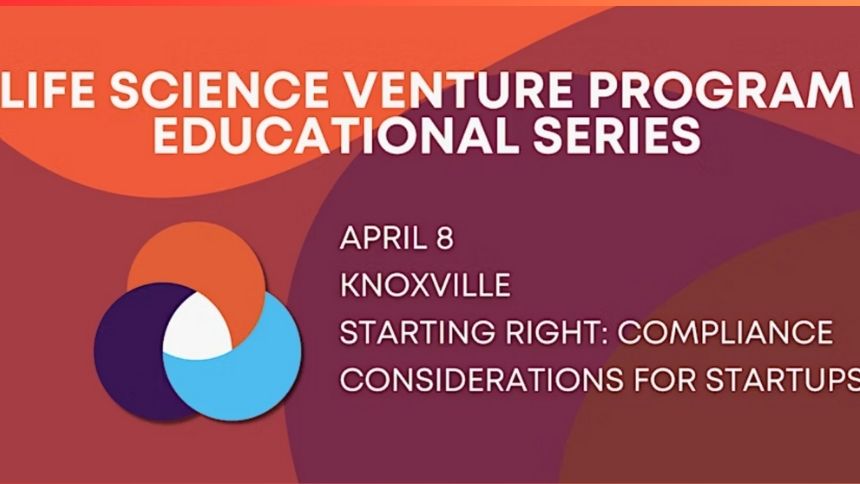
PYA hosts third Life Science Venture Program educational session
The topic was compliance considerations for start-ups.
The third educational offering from the new Life Science Venture Program featured two Principals from PYA, the power behind teknovation.biz, during a Tuesday afternoon session held at PYA headquarters in Knoxville and also delivered virtually to attendees in other cities.
Titled “Starting Right: Compliance Considerations for Start-ups,” the roughly one-hour session featured Sarah Bowman and Zach Doolin. She is a nationally recognized revenue integrity, revenue management, and regulatory compliance expert who specializes in regulatory compliance matters related to the 340B Program, proxy work relative value unit (work RVU) analyses, and initiatives related to black box payer reimbursement modeling. He advises physician practices and healthcare systems in the areas of fair market value compensation; commercial reasonableness; physician compensation design, development, and strategy; physician/hospital economic alignment models; and value-based compensation.

Bowman started the presentation by noting that compliance is defined as meeting the expectations of others. “Compliance is least expensive when it is done proactively, but most expensive when it is done after the fact,” she told attendees.
After listing a number of laws and regulations covering compliance, Bowman defined the terms “fraud, waste, and abuse.”
- Fraud is the intentional deception or misrepresentation that an individual knows, or should know, to be false, or does not believe to be true, and makes, knowing the deception could result in some unauthorized benefit to himself or some other person(s).
- Waste involves incurring unnecessary costs as a result of deficient management, practices, or controls.
- Abuse involves practices that are inconsistent with sound fiscal, business, or medical practices, and that result in an unnecessary cost to the Medicaid program; or in reimbursement for services that are not medically necessary or that fail to meet professionally recognized standards for healthcare.
Bowman listed the seven elements of an Effective Compliance Program as identified in the 1991 Federal Sentencing Guidelines for Organizations, which she said are the primary indicators of the federal government’s expectations for effective compliance activities. Those elements are:
- A high-level of oversight;
- Policies and procedures;
- Open lines of communication;
- Training and educational offerings;
- Consistent enforcement of standards;
- Response to detected errors; and
- Auditing and monitoring.

The presentation shifted to Doolin for a discussion of Fair Market Value (FMV) and commercial reasonableness. He identified five key steps for determining commercial reasonableness, followed by another five steps to address the arrangements for FMV. The first set of five actions to determine commercial reasonableness are:
- Business Purpose;
- Appropriateness of the provider;
- Requirements and limitations of the arrangement and location;
- Resources available and alternatives to the Key Opinion Leader or Healthcare Professional; and
- Oversight and monitoring plan.
Once commercial reasonableness has been determined, the five steps for documenting FMV are:
- Identify the background, relevant facts, and key assumptions surrounding the arrangement.
- Initiate an analysis by identifying multiple objective benchmark compensation surveys and/or other resources to help analyze the specific services.
- Identify all the factors and surrounding circumstances that should be considered when determining fair market value compensation for a specific transaction.
- Identify one or more approaches to determine fair market value compensation.
- Reconcile the various approaches and document conclusion in writing.
Doolin emphasized repeatedly the importance of “documenting how and why you did what you did. If the person is an exception, document why” that is the case.
Like what you've read?
Forward to a friend!

